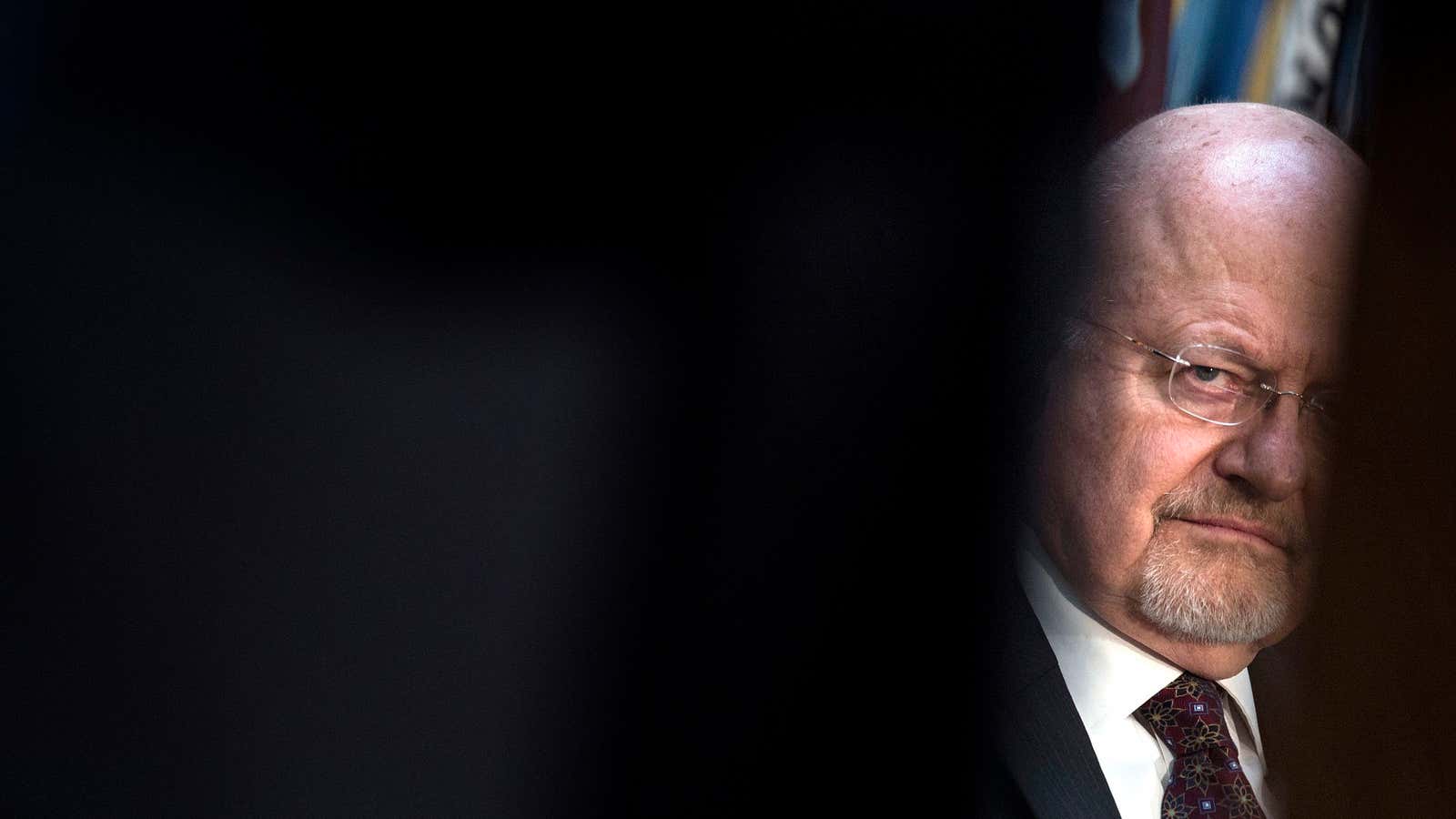A US federal appeals court—essentially, the second-highest in the land—has ruled that the bulk collection of US telephone records by the National Security Agency isn’t permitted by laws passed after the 9/11 attacks to increase intelligence collection. You can read the entire decision here (pdf).
The challenge was brought by the American Civil Liberties Union against James Clapper, the director of National Intelligence, along with the heads of the NSA, the FBI, the Department of Justice, and the Department of Defense. (Of the five officials named in the suit when it was filed in January 2014, only Clapper remains in the same role.)
The ACLU was prepared to argue that the government’s dragnet violated the US constitution’s prohibitions on unreasonable searches, but it didn’t have to. A three-judge panel agreed first that the Patriot Act, the 2001 law that supposedly gave the government these powers, does not allow for the collection of data without a warrant. Specifically, they cited section 215 of the act:
In keeping with this usage, §215 does not permit an investigative demand for any information relevant to fighting the war on terror, or anything relevant to whatever the government might want to know. It permits demands for documents “relevant to an authorized investigation.”
The government has not attempted to identify to what particular “authorized investigation” the bulk metadata of virtually all Americans’ phone calls are relevant. Throughout its briefing, the government refers to the records collected under the telephone metadata program as relevant to “counterterrorism investigations,” without identifying any specific investigations to which such bulk collection is relevant.
… Put another way, the government effectively argues that there is only one enormous “anti-terrorism” investigation, and that any records that might ever be of use in developing any aspect of that investigation are relevant to the overall counterterrorism effort. The government’s approach essentially reads the “authorized investigation” language out of the statute.
The judges also cite Edward Snowden, the NSA whistleblower now living in exile in Russia, as the key source of the revelation of this illegal program. Snowden, of course, has not returned to the US for fear of prosecution—while the government officials who designed and executed the program don’t appear to face any such concern.
It’s not clear how the government will respond to this decision; it has the opportunity to appeal to the US Supreme Court. There also are other, pending cases against the law, as well as a bill in Congress that intends to repeal bulk data collection.
“This ruling focuses on the phone-records program, but it has far broader significance, because the same defective legal theory that underlies this program underlies many of the government’s other mass-surveillance programs,” Jameel Jaffer, the ACLU’s lead counsel, said in a statement. “The ruling warrants a reconsideration of all of those programs, and it underscores once again the need for truly systemic reform.”
Either way, this ruling is a big win for civl liberties advocates—and an interesting example for other nations. Even as the US appears more likely than ever to dismantle some of the surveillance appartus it put in place following a shocking terror attack, France has just enacted a sweeping intelligence measure in the wake of the Charlie Hebdo attacks.
